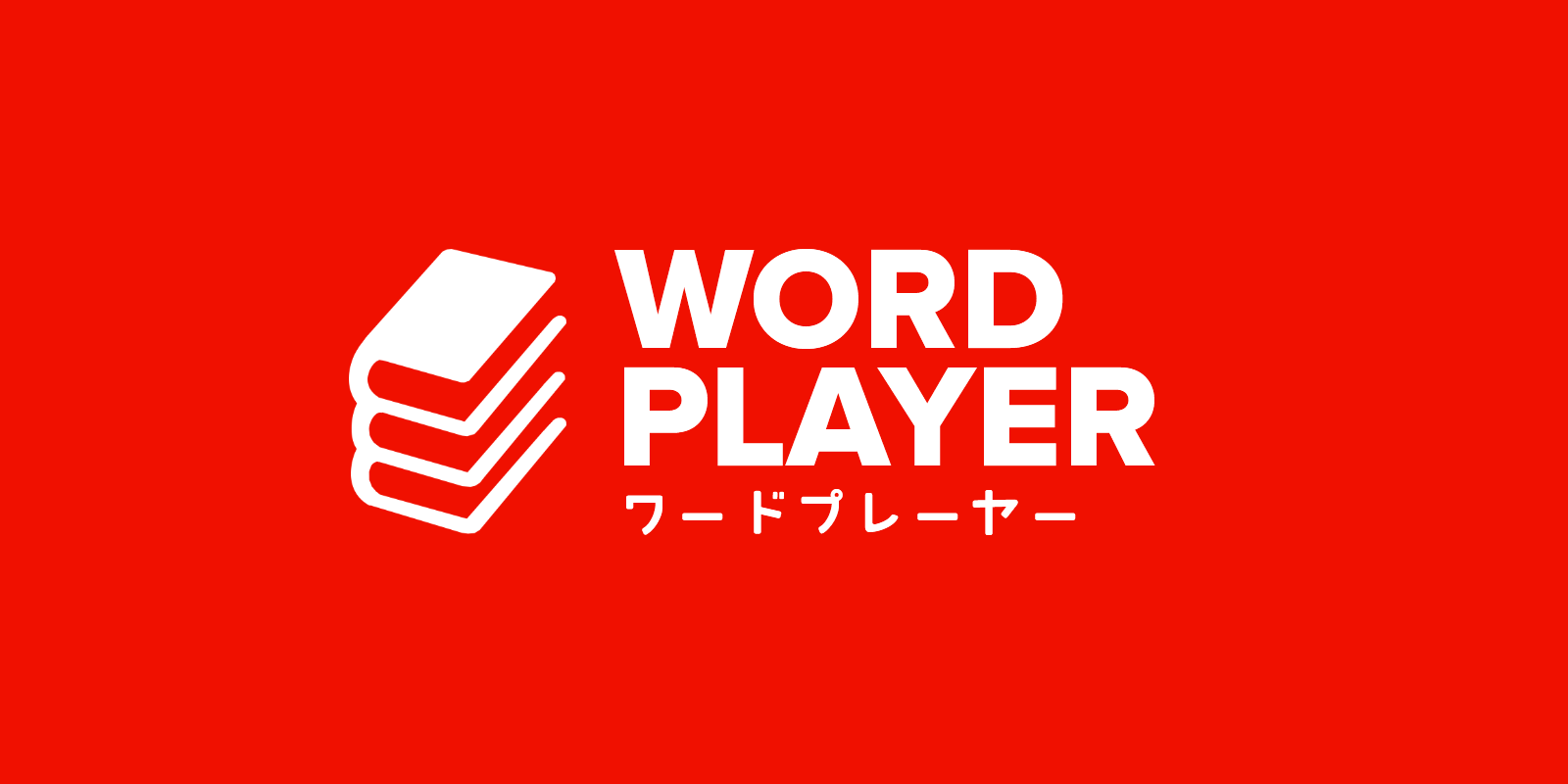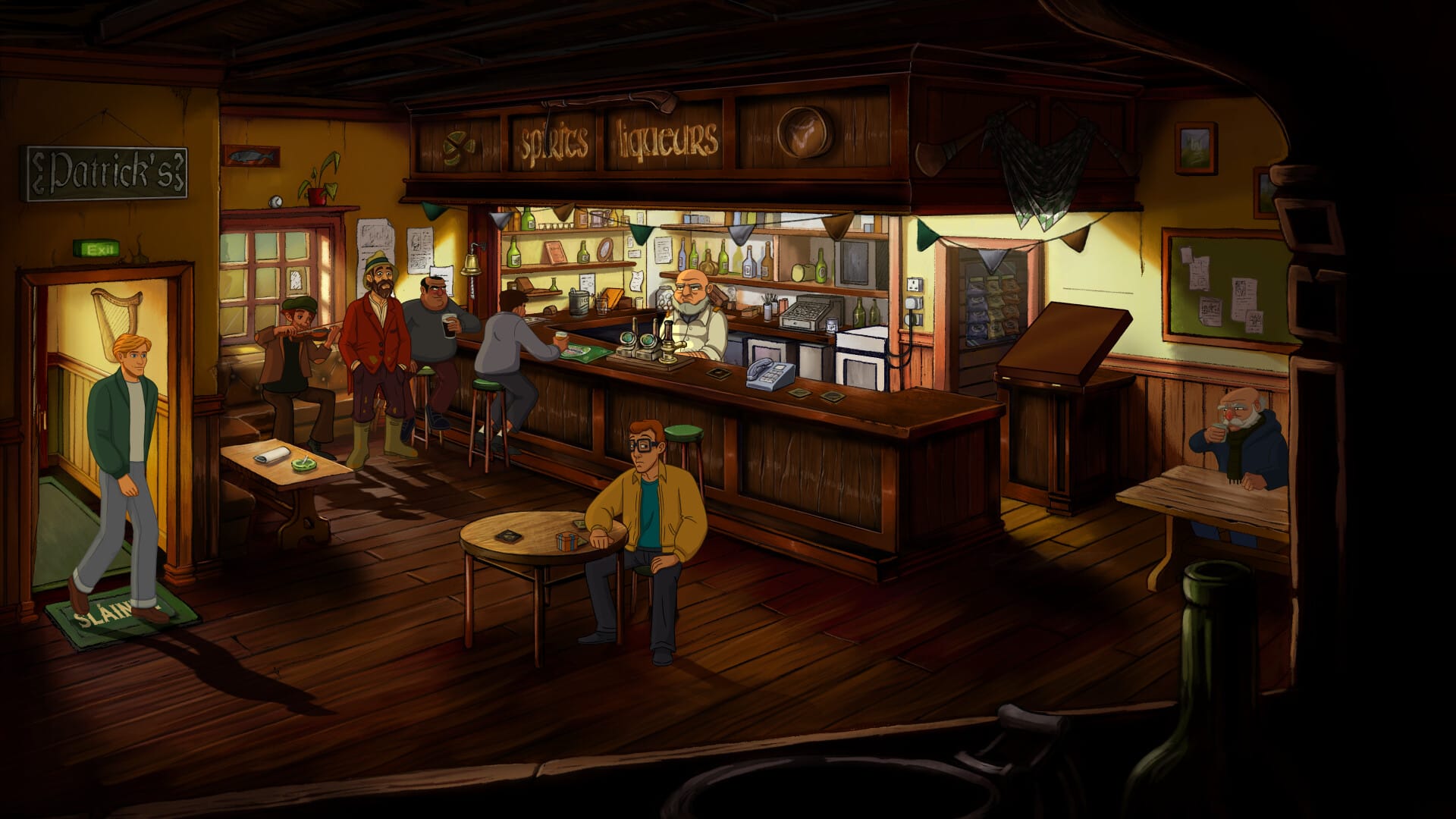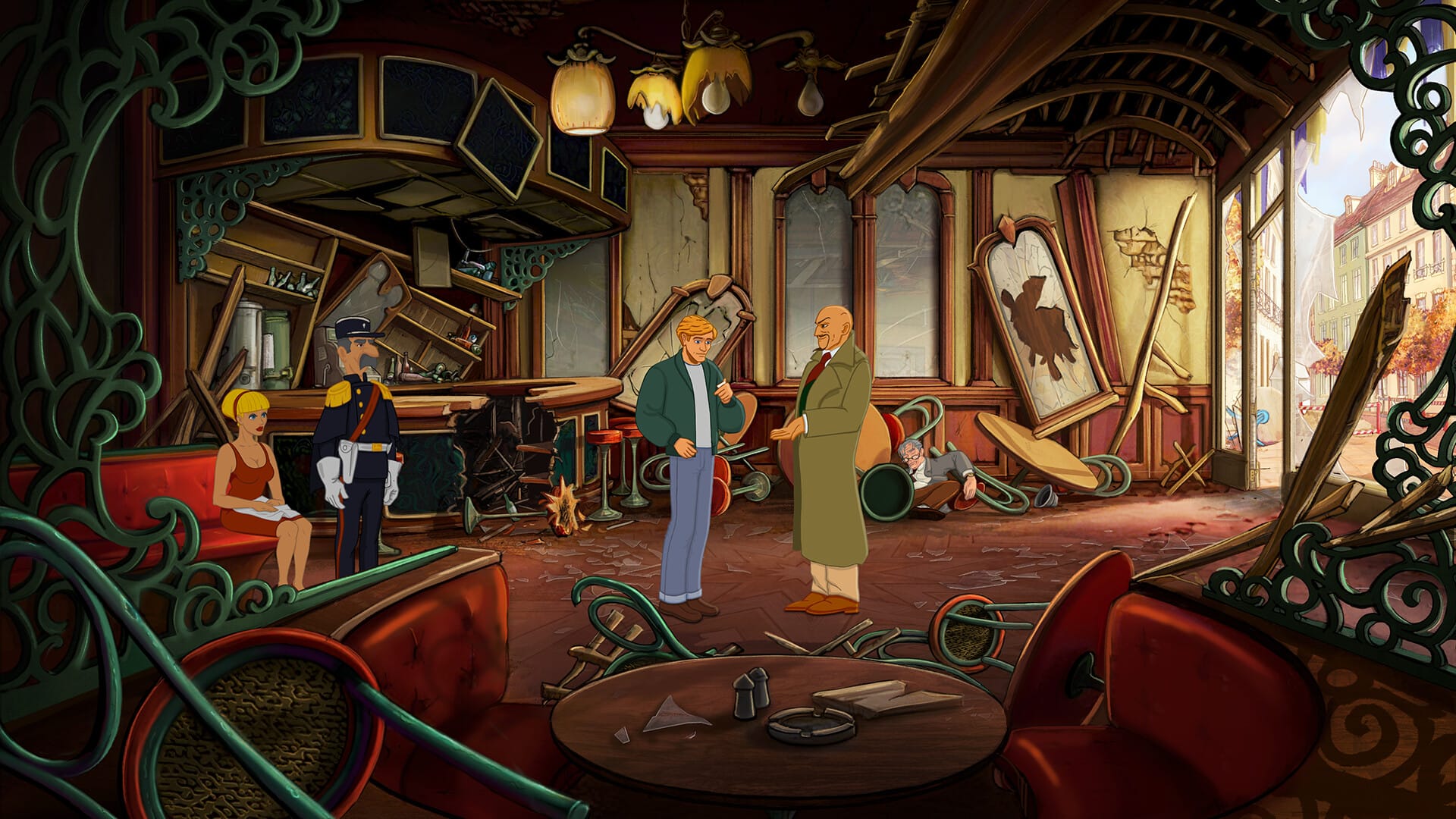WordPlayer: Broken Sword Reminds Me Who I Am
One of the most human games I've ever played

Fairly early on in Broken Sword: The Shadow of the Templars, protagonist George Stobbart is given a hand buzzer by the manager of a costume store. It's a classic prank object - you slip it into your palm, and when you shake someone's hand they'll receive a mild shock. The buzzer sits in your inventory for the rest of the game, and every time you talk to another character you have the option of presenting it to them, which usually results in George asking for a handshake.
There's an achievement in the new remaster for presenting the hand buzzer to as many people as possible. There are about 50 characters in Broken Sword, and while some of them have already exited from the game by the time you get the buzzer, every other character in the game gets a unique interaction when you present it to them. In almost every case,when George asks for a handshake, the other character will refuse. The gesture could be misconstrued! They're worried about germs, and don't know where his hand has been! They simply don't see the point in shaking hands right now!
This is, for my money, very funny. George is delighted about the pranking opportunity that has literally been placed into his hand: he can walk around Europe shocking everyone! And systematically, dozens of characters deny him a handshake, each with unique, specific dialogue. It's a true commitment to the bit and when you finally hit the part in the game when the hand buzzer needs to be used, the payoff is immense.
This is a big part of the fun of the traditional point-and-click adventure games: the sheer volume of bespoke dialogue you get from testing every inventory item against every character and object in the game. Often in these games, you'll get a "nope", a "that wasn't going to work", a "that's not a good idea" - but then sometimes you get a reactive line, something hidden away in the script that's only accessible by trying something a bit silly. In Broken Sword, the reactive lines feel like they outweigh the more generic responses.

This is a big part of the fun of the traditional point-and-click adventure games: the sheer volume of bespoke dialogue you get from testing every inventory item against every character and object in the game.
I first became aware of Broken Sword in May 2022, six years after its initial release for PC and PlayStation. Issue 66 of NGC Magazine - a UK Nintendo mag that, curiously enough, stopped being released in Australia immediately after that issue - carried a review of the Game Boy Advance version of the game, awarding it a 5/5 score. "This is just brilliant", the review opens. "Broken Sword: The Shadow of the Templars follows George Stobbart, an American tourist who gets caught up in a mystery after witnessing a murder in A Parisian cafe by a clown armed with a bomb (...) Cue a massive investigation that sees George trekking half-way round the world."
I'd never played an adventure game before. I did not know that there were games that told stories like this. I didn't realise that the adventures I could go on in games could be grounded in some kind of reality - that you could make a game about a guy called George whose vacation gets side-tracked by a conspiracy.
A year later, I picked up a copy from a local store. I played a version with heavily compressed graphics, no voice acting, and - unless I was mistaken and the guides I was reading online were misleading - a bug that prevented me from finishing it. I've been in love with the game ever since. I went on to finish it on the Wii, of all places, and it's a game I reminisce about often.
Coming back to Broken Sword in 2024 - and replaying the fancy new Reforged version on PlayStation 5 - has felt like coming home. When I think about why I've spent so much of my adult life working in, on, and around games, I think of Broken Sword. I think of taking control of George, investigating the Parisian cafe he just witnessed explode, delving deeper and deeper into a mystery.
Revisiting Broken Sword, and finding that my opinion had not shifted - that I still found it to be engrossing, ambitious, and quite special - was just about enough to bring a tear to my eye. This game changed me the first time I played it. It shifted my understanding of what games might mean to me. It's the game that taught me that games can tell real stories. It set me on a path I'm still on today.
Broken Sword is the sort of game where you can feel the development team's energy shining through the screen. It's not just that the game is well-written, although it certainly is - it's that the development team, and the writers, worked so hard to make the whole game feel cohesive. If something looks interesting, George should be able to inspect it. If George is able to talk to someone, they should have a clear, defined personality. That personality should guide how they respond to every single object you show them. It feels lived-in and real, and easy to love.

Broken Sword is the sort of game where you can feel the development team's energy shining through the screen.
I adore the small world Revolution built for Broken Sword. This version of Paris isn't quite a parody, but it's also not a tourist brochure - it's a land that's strange yet familiar to George, our American hero. Early in the game he meets journalist Nico Collard, and it's immediately clear that he's going to fall in love with her - this might be the first game I played with a proper, serious romantic subplot. On replay, it's a little clearer why George and Nico can't go the distance across all the Broken Sword sequels - the relationship is more nuanced than I remembered, romantic but also tense, two people caught up in the moment who are falling for each other under very unusual circumstances. It's sad but also honest that they eventually break up, even if a part of me sincerely wants the next game to end with them kissing.
There are no thrown-off lines in this game. No dialogue that feels like a placeholder. Every interaction you have is a conversation between not just George and whoever or whatever he's interacting with - it's a conversation between you and the developers. "You see what we did here?", they might say. "Oh, good thinking. That's not quite it, though." "Ha, good one." "Yes, you figured it out!" I appreciate that the Reforged edition has stripped away every change and addition made for the Director's Cut - not everything has aged perfectly, but I think the team at Revolution is right in thinking that they nailed it the first time.
Some of the puzzles are obtuse, the overarching plot can be hard to keep track of, and there's exactly one story decision in the game that I don't like. But a game does not need to be perfect for me to love it. Those blemishes are reminders that the game is a human product, and it reflects its creators in all their flawed glory. Broken Sword is, I think, one of the most human games I've ever played.

There are no thrown-off lines in this game. No dialogue that feels like a placeholder. Every interaction you have is a conversation between not just George and whoever or whatever he's interacting with - it's a conversation between you and the developers.
Some years after I played Broken Sword for the first time, I emailed Charles Cecil, the game's director. I was emailing him about the third game in the series, The Sleeping Dragon - which I'd just played and really enjoyed - and I wanted to tell him, I suppose, that I thought these games were great. I'd never felt compelled to do this before, and I don't think I fully appreciated how cool it was when he replied, thanking me.
I ended up sending him a bunch of annoying questions - I wanted to know if I could get a GBA port of Broken Sword 2, as well - and he answered them with frankly unnecessary patience. Perhaps it felt natural to me, as a teenager, to continue the conversation that I felt the game had already started between us. These days, I know well enough that Mr Cecil would have been told, thousands of times, how good and important the first Broken Sword was. But coming back to it feels like a way of reminding myself of who I am, and now the conversation is between the teenage me who found something of himself in the game and the adult who works in the industry. Perhaps in another decade another version of me will continue that conversation further.